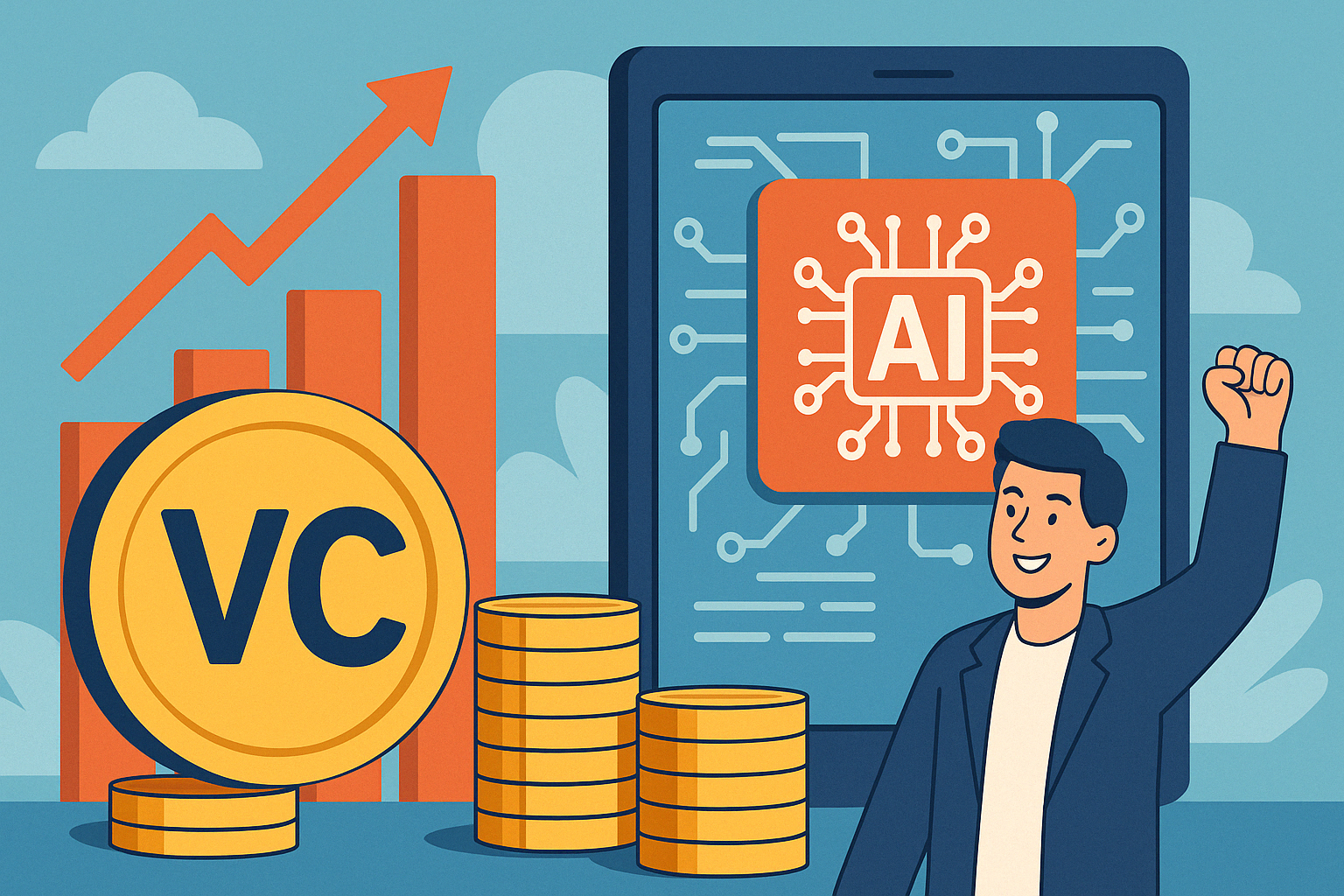Artificial intelligence has officially claimed the throne in the venture capital world. According to newly released Q1 2025 data, AI startups accounted for nearly 60% of global VC investments, securing a staggering $73 billion in funding. The numbers confirm what many in the tech world have long sensed — we are in the midst of a full-blown AI investment boom.
This shift marks a pivotal moment in startup history, not only for the sheer volume of capital pouring into AI companies but for the signals it sends to founders, investors, and enterprises across every sector.
The first quarter of 2025 has shattered expectations, with AI startups drawing more capital than any other category — by far. According to PitchBook data, AI ventures made up 57.9% of all VC deals globally, dwarfing interest in other popular verticals such as fintech, crypto, healthtech, and climate tech.
This surge is powered by a combination of factors:
- Rapid advances in large language models (LLMs) and generative AI tools
- Widespread enterprise adoption of AI solutions
- Growing belief among investors that AI will reshape how every industry operates
And it’s not just early-stage funding — some of the biggest rounds in history are now being funneled into AI.
Two companies in particular have defined this wave.
OpenAI
In a historic moment, OpenAI raised $40 billion in a single funding round led by SoftBank, giving the company a valuation north of $300 billion. This marks the largest private technology deal ever recorded.
The funding is aimed at expanding OpenAI’s cloud infrastructure, training next-generation models, and accelerating deployment of tools like ChatGPT across enterprise and consumer markets.
Anthropic
Meanwhile, rival AI lab Anthropic raised $3.5 billion in a Series E round led by Lightspeed Venture Partners, bringing its post-money valuation to $61.5 billion. Anthropic’s AI assistant, Claude, is gaining traction for its ethical AI positioning and transparency-focused development approach.
These mega-rounds are absorbing vast amounts of VC capital — but they’re also catalyzing a broader ecosystem of tools, platforms, and vertical applications.
The investment thesis is straightforward: AI is expected to redefine every industry, from content creation and customer support to research, logistics, healthcare, and autonomous systems. What cloud computing was to the 2010s, AI is to the 2020s — but faster, deeper, and potentially more disruptive.
VCs are also motivated by the platform effect. Companies like OpenAI and Anthropic are building foundational models, while others are building verticalized solutions on top of them. This layered ecosystem encourages investment across the stack, from infrastructure to end-user applications.
Additionally, many funds are diversifying their AI bets across:
- Agentic AI systems and copilots
- Domain-specific models (e.g., legal, medical, coding)
- AI safety and alignment tools
- Data infrastructure startups enabling AI workflows
For early-stage founders, the message is clear: AI-native startups are more fundable than ever—if they can demonstrate real value, defensibility, and application-specific traction.
However, this flood of capital also means heightened expectations. Investors will be looking for:
- Deep technical moats
- Teams with research or engineering pedigree
- Clear go-to-market strategies
- Regulatory awareness and data compliance
The bar is rising quickly, and founders must move fast to claim space before categories get saturated.
AI’s dominance in venture capital isn’t just a trend—it’s a structural shift. With nearly $3 out of every $5 in VC now flowing into AI startups, it’s safe to say that we’re entering a new era of tech investment.
Whether this momentum leads to sustainable innovation or speculative overheating remains to be seen. But for now, the verdict is in: AI isn’t just the future of tech — it’s the present of venture capital.

